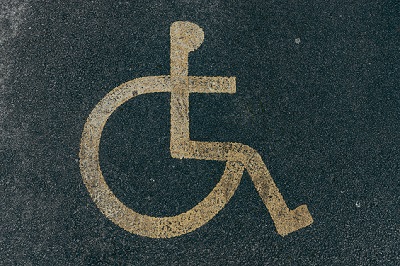If you are about to embark on a weight loss journey, you are certain to find this post helpful. In this article, we explained the different types of body weights, which include: Underweight, normal weight, overweight, and obesity, with regard to Body Mass Index (BMI).
We also explain the benefits of normal body weight and the dangers of excess body weight.
Table of Contents
- Types of Body Weight
- Dangers of Overweight and obesity
- Interdisciplinary Approach to Weight Loss
- Admonition
Types of Body Weights
The human body weight is classified into different types with regard to the Body Mass Index (BMI). Through this classification, people can determine if they have healthy weights or otherwise and take appropriate steps to remedy their weights and improve their health.
To determine the BMI of an individual, their weight is taken in kilograms (Kg) and height measured in meters (m), then the values are entered in the BMI formula given below;
BMI = Body Weight (Kg) / Height (m) * Height (m)
In simple terms, BMI is the weight of an individual taken in kilograms divided by the square of the height measured in meters (m). The values derived from this formula determine what class of weight people belong to.
- Underweight: A person is said to be underweight if their body mass index is less than the value of 18.
- Normal Weight: One is said to have a normal and healthy weight if their BMI falls between the range of 18 and 22
- Overweight: A person falls in this class if their BMI is greater than 22 but less than 24
- Obesity: One is considered obese if their BMI is more than 24
There are different health conditions associated with different body weights, but in this post, we shall focus on the conditions associated with excess weight, as it highlights the importance of embarking on a weight loss journey.
Dangers of Overweight and Obesity
There are several health conditions associated with obesity, which is why we must ensure we have a normal and healthy body weight. Obesity impacts our activities of daily living and makes us unproductive when left unchecked. Excess bodyweight is a health risk factor that can lead to several diseases which including:
Diabetes: A condition that results from excess carbohydrate (sugar) in the body. When we consume an unhealthy amount of food with excess calories, it can lead to an increase in body weight and thus risks of diabetes. To avoid this debilitating health scare, one must be conscious of the type and composition of food they consume.
Kidney Disease: There are different types of kidney disease, and some have been linked to an unhealthy amount of fat in the body. Excess body weight can cause the kidneys to fail because the organ is subjected to an unusual work pressure. The kidney is the filtering unit of the body, which helps us excrete liquid metabolic waste from the body. Being overweight or obese impacts its functionality.
Heart Disease: Some heart diseases can also be traced to excessive body weight. When we consume foods with excess calories, the body stores the excess in several parts of the body, including the liver, subcutaneous layer of the skin, on the outer walls of the heart and some other parts of the body. The excess fats stored on the walls of the heart affect the functions of the heart, which prevents it from working optimally. The fat storage sometimes obstructs blood supply to the heart, which may lead to the condition known as cardiac arrest if not checked on time.
These are some of the risks and diseases associated with overweight and obesity.
Interdisciplinary Approach to Weight Loss
It is highly recommended that you work with healthcare providers when you want to lose weight or shed excess body fat. These health professionals would design custom weight loss programs to help you achieve the desired results without exposing you to health hazards. There are three different health professionals/departments which play very important roles in the weight loss program, as well as other sub-departments. The three main departments work holistically to design programs that suit your needs and meet your goals. These departments are;
Nutritionist: Nutritionists play important roles in weight loss. People who are overweight or obese and looking to lose weight are encouraged to seek the expertise of a nutritionist. These professionals would look into your diet history and most likely issue a cease and desist on some of your favourite diets, especially foods that are high in calories.
Next, they’d design an effective meal program for you to follow; these meals are likely to be rich in vegetables and fruits. People who follow the instructions of the nutritionist are expected to have improved health and be ready for the rigorous phase of weight loss, which is exercise. But before jumping into this phase, you are expected to visit the desk of another healthcare department.
Also check: Increase in Divorce cases in Africa
Cardiologists: These are health professionals who take care of the heart. Before embarking on a rigorous exercise, it is important to ensure your heart is in good condition. So, you must visit the cardiologist to take an electrocardiogram of your heart, in order to rule out any possible hidden heart condition.
Because it is dangerous to work vigorously and subject an ailing heart to high pressure. It is a recipe for heart failure, which must be prevented. After visiting the cardiologist to ensure your heart is in great condition and able to withstand the pressure of intense exercise, the next step would be to work with a physiotherapist.
Physiotherapist: Physios can work with you directly or work with a third-party sub-department, like gym instructors. They would design an exercise program to help you lose weight. They’d start with low intensity exercise, which involves some mild callisthenics, after which they scale up to medium intensity exercise depending on some factors, which include feedback they get from you.
The exercise program is expected to consist of various types of anaerobic exercises, such as running some miles on a treadmill or going on a hike. You are advised to communicate a lot with your physiotherapists and gym instructors so they know if the program is effective or whether any changes need to be made.
In the course of your weight loss program, you would be required to visit your nutritionist and cardiologist again to review your heart condition and learn if you need any adjustments to your diet.
Admonition
Be advised to check your Body Mass Index (BMI) and learn the class of body weight you belong. If you fall into the category of overweight or obesity, you need to embark on a weight loss journey, and please ensure to work with the healthcare professionals highlighted in this article.



